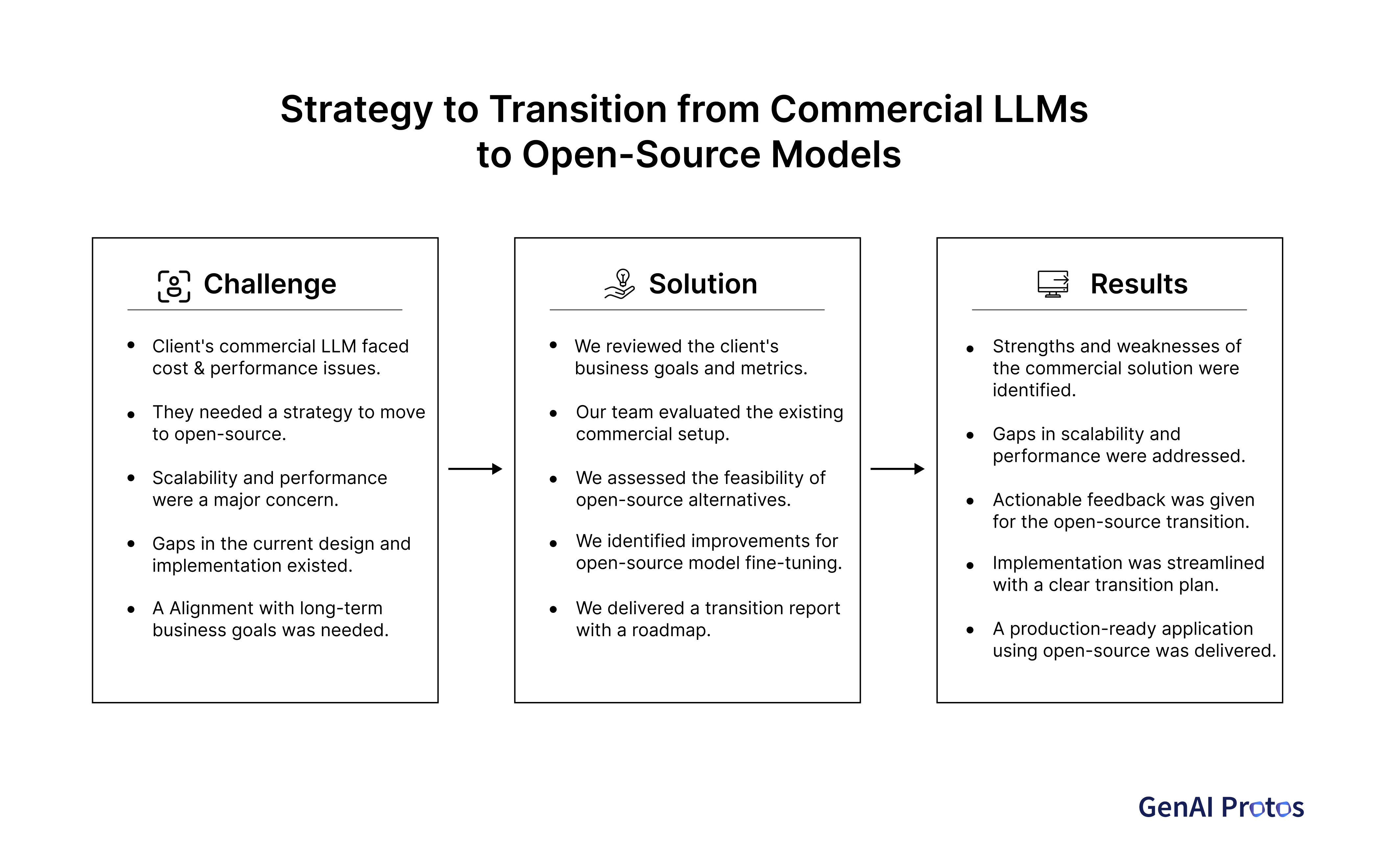Strategy to Transition from Commercial LLMs to Open-Source Models
Client Situation
An enterprise was running their LLM-based AI applications on commercial models like ChatGPT. While the solution delivered functional results, the client faced increasing challenges related to:
- High operational costs due to usage-based pricing for commercial models.
- Latency issues that impacted real-time performance and user experience.
- Concerns around accuracy and customization to meet specific business needs.
- Long-term sustainability and control over the models they were using.
The client sought our expertise to conduct a feasibility study and develop a strategy to transition from commercial models to small, open-source LLMs for improved cost efficiency, lower latency, and better optimization.

Our Advisory
Our team provided a structured strategy and feasibility study to address the client’s challenges:
- Requirement Analysis
- Reviewed the existing LLM applications, workloads, and performance benchmarks.
- Identified critical business needs, including response accuracy, real-time performance, and cost constraints.
- Open-Source Model Assessment:
- Evaluated multiple open-source LLMs (e.g., LLaMA, GPT-NeoX, Falcon, and Bloom) based on parameters like cost, latency, accuracy, scalability, and customizability.
- Conducted model benchmarking to compare results against the current commercial solution.
- Infrastructure and Deployment Strategy:
- Designed an architecture for deploying small, fine-tuned open-source models using cost-efficient cloud infrastructure.
- Proposed GPU/accelerator utilization strategies to ensure low-latency inference at scale.
- Cost Optimization Analysis:
- Provided a detailed cost-benefit analysis, showcasing potential savings from switching to open-source models.
- Suggested approaches for fine-tuning models to improve accuracy while reducing computational costs.
- Implementation Roadmap:
- Delivered a step-by-step transition plan, including proof-of-concept (POC), pilot testing, and production deployment phases.
- Ensured guidelines for data privacy, security, and model governance were included in the strategy.
Outcome
- The client received a clear, actionable feasibility report and transition strategy tailored to their business needs.
- Identified suitable open-source LLMs that matched or exceeded accuracy and latency benchmarks at a significantly lower cost.
- Reduced projected operational costs by up to 60% through the adoption of open-source models.
- Developed an optimized deployment plan to ensure low-latency, real-time performance while maintaining control over model customization.
- Enabled the client to achieve a more scalable, sustainable, and cost-effective AI infrastructure without compromising on functionality.
Client Testimonial
“GenAI Protos delivered a clear strategy to transition our LLM workloads to open-source models. Their expertise in benchmarking and cost analysis helped us reduce costs significantly while improving performance and control over our AI systems.”